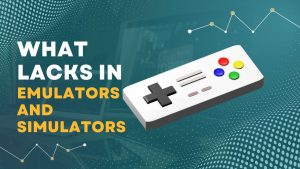According to the findings, using online social media for collaborative learning had a substantial impact on peer interaction, teacher interaction, and online knowledge sharing behavior.
Interactivity with professors, peers, and online information sharing behavior has also had a big impact on students’ engagement, which has a significant impact on academic success. Using online social media for collaborative learning helps students become more creative, dynamic, and research-oriented. Utility of social media in transferring resource materials, collaborative learning, and engagement with colleagues and professors would help students become more enthusiastic and dynamic.
Youtube and Social Media as learning tools
How you can convert your Youtube and social media usage habits to increase your learning capacity? Billions of users consume contents offered on social media and Youtube. Although entertainment, news, travel updates and trending topics gain rapid popularity but there is a huge potential of Facebook and Youtube if its appropriately used as a medium of education and learning. Freelance educators, DIY enthusiasts, HowTo videos and Book summarizations are most commonly used learning materials on Social media. Before tracking Youtube for your learning ambition:
- Must check Verification badges on channels before subscribing.
- See if the channel also offers a mobile app for on-the-go learning.
- Analyze Youtube comments to get quick reviews, jump to time slot and Owner response and feedback on comments
- Use Video downloading apps for browser within legal limits.
Aligning your surfing habits with conscious online learning
Many users surf internet without any disciplined or focused attempt towards learning. As the channels offer too many distractive features, defining your learning goals and sticking to your goals while learning on social media is a huge challenge Major question is “How your online surfing habits can be automatically transformed to a well directed and systematic knowledge gaining tracks?”.
- Track your social media time with a time tracking tool like TimeDoctor.
- Utilize video transcripts where available and link with your note taking tools
- Check your browser timing history to filter out and map what your been doing consciously or unconsciously.
MicroLearning through social media
Leverage the power of micro learning in a highly distracted digital world is only possible if you define chunks of knowledge and only work on a small and intermittent well-focused learning tasks. With a clear sense of direction you can define small units of learning and gain a beneficial outcome from your learning tasks on social media.
- Prefer shorter social media videos with better summarization in start or end
- Linkup and group your learning goals.
- Take breaks for self questioning during longer videos.
Tune-up your Youtube and Facebook recommendation system
Your YouTube search results, suggestions on the home page, in-app notifications, and suggested videos, among other things, may be influenced by your behaviour on YouTube.
There are a number of techniques to finetune your Youtube learning activities. You can delete particular videos and searches from your watch history and search history, respectively. You can also pause your watch and search history, or clear your watch and search history to start anew. Checkout this Google guide
https://support.google.com/youtube/answer/6342839?hl=en&co=GENIE.Platform%3DAndroid
